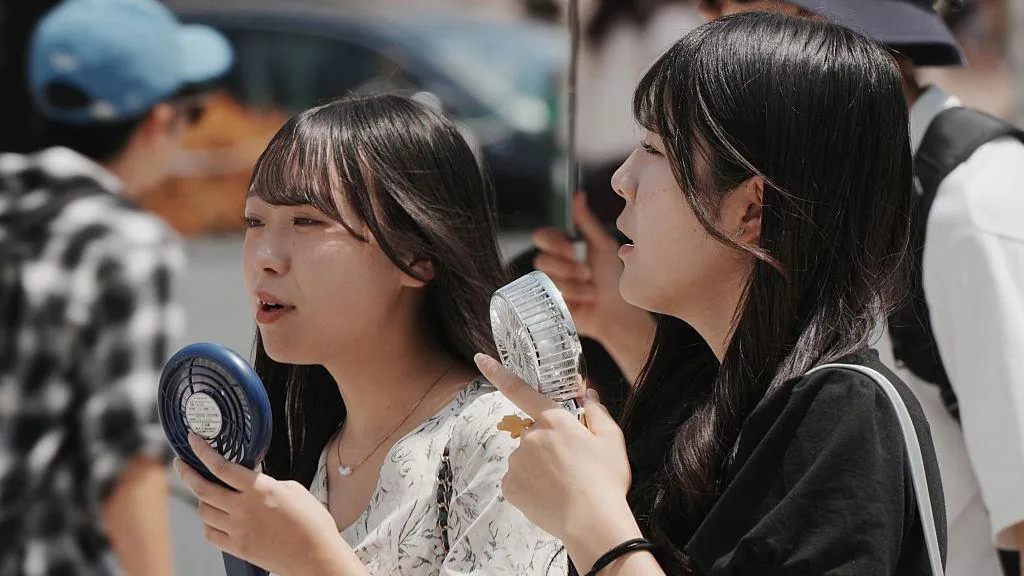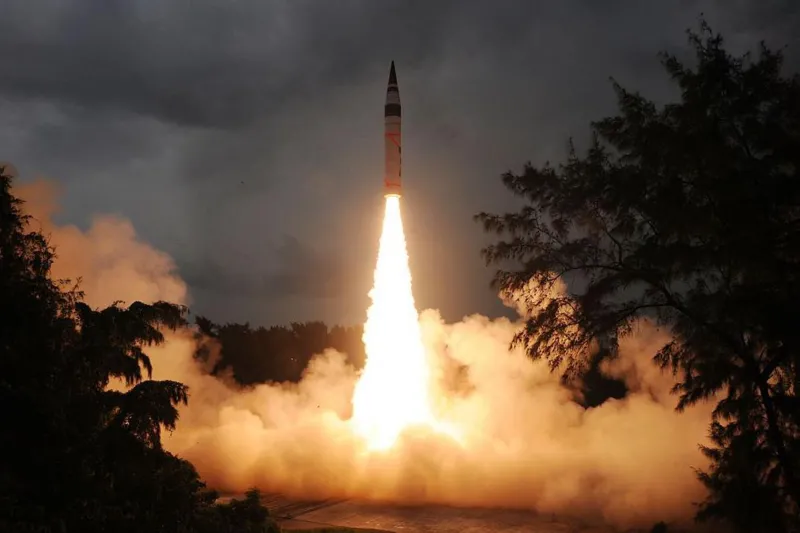Starvation, brutal crackdowns, and no chance to escape in North Korea.
For months, the BBC has been communicating in secret with three North Koreans living in the country. They expose, for the first time, the disaster unfolding there since the government sealed the borders more than three years ago.

Myong Suk is hunched over her phone, desperately trying to make another sale. A shrewd businesswoman, she is secretly selling minuscule amounts of smuggled medicine to those who desperately need it - just enough so she can survive the day. She has already been caught once and could barely afford the bribe to stay out of prison. She cannot afford to be caught again. But at any moment there could be a knock on the door. It is not just the police she fears, it’s her neighbours. There is now almost no-one she can trust.
This is not how it used to be.
Myong Suk’s medicine business used to be thriving.
Myong Suk: “I tried to smuggle, but I got caught”
But on 27 January 2020 North Korea slammed shut its border in response to the pandemic, stopping not just people, but food and goods, from entering the country. Its citizens, who were already banned from leaving, have been confined to their towns. Aid workers and diplomats have packed up and left. Guards are under order to shoot anyone even approaching the border. The world’s most isolated country has become an information black hole.
Under the tyrannical rule of Kim Jong Un, North Koreans are forbidden from making contact with the outside world. With the help of the organisation Daily NK, which operates a network of sources inside the country, the BBC has been able to communicate with three ordinary people. They are eager to tell the world about the catastrophic toll the border closure has taken on their lives. They understand if the government discovers they are talking to us, they would likely be killed. To protect them, we can only reveal some of what they have told us, yet their experiences offer an exclusive snapshot of the situation unfolding inside North Korea.
“Our food situation has never been this bad,” Myong Suk tells us.
Like most women in North Korea, she is the main earner in the family. The meagre wages men earn in their compulsory state jobs are all but worthless, forcing their wives to find creative ways to make a living.
Before the border closure, Myong Suk would arrange for much-needed drugs, including antibiotics, to be smuggled across from China, which she would sell at her local market. She needed to bribe the border guards, which ate up more than half of her profits, but she accepted this as part of the game. It allowed her to live a comfortable life in her town in the north of the country, along the vast border with China.
The responsibility to provide for her family has always caused her some stress, but now it consumes her. It has become nearly impossible to get hold of products to sell.
Once, in desperation, she tried to smuggle the medicine herself, but was caught, and now she is monitored constantly. She has tried selling North Korean medicine instead, but even that is hard to find these days, meaning her earnings have halved.
Now when her husband and children wake, she prepares them a breakfast of corn. Gone are the days they could eat plain rice. Her hungry neighbours have started knocking at the door asking for food, but she has to turn them away.
“We are living on the front line of life,” she says.
Chan Ho
In a town elsewhere on the border, Chan Ho, a head-strong construction worker, is having a frustrating morning. “I want people to know that I am regretting being born in this country,” he vents.
He is up early again to help his wife set up for the market, before heading to the construction site. He dutifully carries her products and loads them on to her stall, fully aware that her business is the only reason he is still alive. The 4,000 won he makes a day - the equivalent of $0.50 (£0.40) - is no longer enough to buy one kilo of rice, and it has been so long since his family received government food rations, he has forgotten about them.
The markets, where most North Koreans buy their food, are now almost empty, he says, and the price of rice, corn and seasonings has soared.
Because North Korea does not produce enough food to feed its people, it relies on imports. In sealing the border, the government cut off vital supplies of food, along with the fertiliser and machinery needed to grow crops.
Chan Ho: “When they closed the border, everything became scarce”
At first Chan Ho was afraid he might die from Covid, but as time went on, he began to worry about starving to death, especially as he watched those around him die.
The first family in his village to succumb to starvation was a mother and her children. She had become too sick to work. Her children kept her alive for as long as they could by begging for food, but in the end all three died. Next came a mother who was sentenced to hard labour for violating quarantine rules. She and her son starved to death.
More recently, one of his acquaintance's sons was released from the military because he was malnourished. Chan Ho remembers his face suddenly bloating. Within a week he had died.
“I can’t sleep when I think about my children, having to live forever in this hopeless hell,” he says.
Ji Yeon
Hundreds of miles away, in the relative affluence of the capital Pyongyang, where tower blocks line the city’s river, Ji Yeon rides the subway to work. She is exhausted, after a similarly sleepless night.
She has two children and her husband to support with the pennies she makes working in a food shop.
She used to sneak fruit and vegetables out of the shop to sell at the market, alongside cigarettes her husband received in bribes from his co-workers. She would buy rice with the money. Now her bags are thoroughly searched when she leaves, and her husband’s bribes have stopped coming. No-one can afford to give anything away.
“They’ve made it impossible to have a side-hustle,” she frets.
Ji Yeon now goes about her day pretending she has eaten three meals, when in truth she has eaten one. Hunger she can endure. It is better than having people know she is poor.
She is haunted by the week she was forced to eat puljuk – a mash of vegetables, plants and grass, ground into a porridge-like paste. The meal is synonymous with the very bleakest time in North Korea’s history – the devastating famine that ravaged the country in the 1990s, killing as many as three million people.
Ji Yeon: “I know one family that starved to death at home”
“We survive by thinking 10 days ahead, then another 10, thinking that if my husband and I starve, at least we will feed our kids,” Ji Yeon says. Recently she went two days without food.
“I thought I was going to die in my sleep and not wake up in the morning,” she says.
Despite her own hardship, Ji Yeon looks out for those worse off. There are more beggars now, and she stops to check on the ones lying down, but usually finds they are dead. One day she knocked on her neighbour’s door to give them water, but there was no answer. When the authorities went inside three days later, they discovered the whole family had starved to death.
“It’s a disaster,” she says. “With no supplies coming from the border, people do not know how to make a living.” Recently she has heard of people killing themselves at home, while others disappear into the mountains to die. She deplores the ruthless mentality that has blanketed the city.
“Even if people die next door, you only think about yourself. It’s heartless.”
For months, rumours have been swirling that people are starving to death, prompting fears North Korea could be on the brink of another famine. The economist Peter Ward, who studies North Korea, describes these accounts as “very concerning”.
“It’s all well and good to say you’ve heard about people starving to death, but when you actually know people in your immediate vicinity who are starving, this implies the food situation is very serious - more serious than we realised and worse than it has been since the famine in the late 1990s,” he says.
The North Korean famine marked a turning point in the country’s relatively short history, sparking a breakdown in its rigid social order. The state, unable to feed people, gave them fragments of freedom to do what they needed to survive. Thousands fled the country, and found refuge in South Korea, Europe, or the United States.
Meanwhile, private markets blossomed, as women began selling everything from soybeans, to used clothes and Chinese electronics. An informal economy was born, and with it a whole generation of North Koreans who have learnt to live with little help from the state – capitalists thriving in a repressive communist country.
As the market empties out for the day, and Myong Suk counts her reduced earnings, she worries the state is coming after her and this capitalist generation. The pandemic, she believes, has merely provided the authorities with the excuse to re-exert its diminished control over people’s lives. “Really they want to crack down on the smuggling and stop people escaping,” she says. “Now, if you even just approach the river to China, you’ll be given a harsh punishment.”
Chan Ho, the construction worker, is also nearing breaking point. This is the hardest period he has ever lived through. The famine was difficult, he says, but there were not these harsh crackdowns and punishments. “If people wanted to escape, the state couldn’t do much,” he says.
“Now, one wrong step and you’re facing execution.”
His friend’s son recently witnessed several executions carried out by the state. In each instance three to four people were killed. Their crime was trying to escape.
“If I live by the rules, I’ll probably starve to death, but just by trying to survive, I fear I could be arrested, branded a traitor, and killed,” Chan Ho tells us.
“We are stuck here, waiting to die.”
Before the border closure, more than 1,000 escapees used to arrive in South Korea every year, but since then only a handful are known to have fled and made it to safety in the South.
Satellite imagery, analysed by the NGO Human Rights Watch, shows that authorities have spent the past three years building multiple walls, fences and guard posts to fortify the border - making it almost impossible to flee.
-bbc







